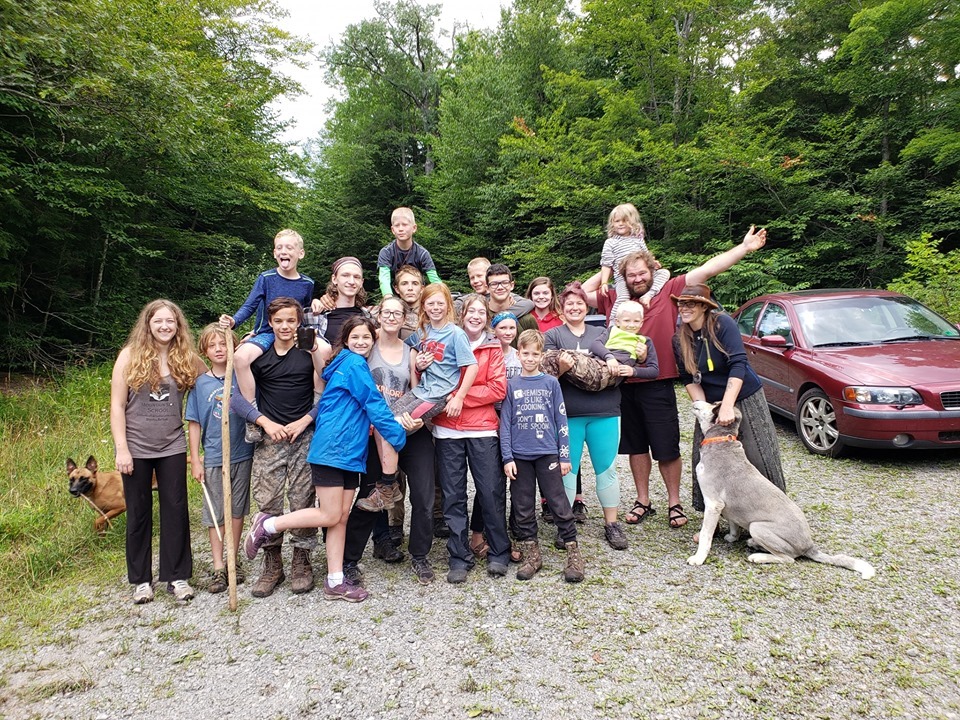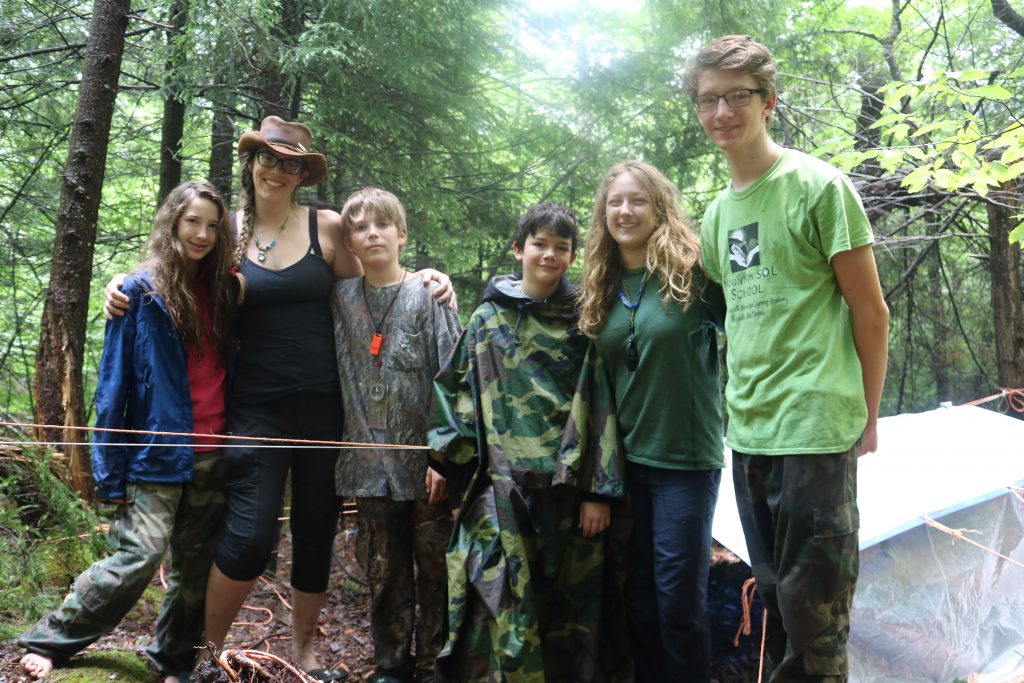Our Scout Path was developed through our Cheat Mountain summer camp. Scouts work through the scout track by going to Cheat Mountain for several years and advancing through all the levels there.

Students who first come to Cheat Mountain are Skills I Students. Cheat Mountain offers 3 main versions of the camp: Skills, Practicum, and Scouts. All students start at the Skills level, where they learn wilderness survival skills including basic navigation with a topo map and a compass, building a fire in difficult conditions, constructing a primitive shelter called a debris hut, basic first-aid, finding and purifying water, and an intro to wild edible plants. Skills students are challenged at the end of the week with a scenario, where they practice their newly acquired skills in real life in a simulated emergency situation.
After one year of learning the skills, they become Skills II students. Skills II students still participate in the skills classes, but they are challenged more. They might have to boil water or make tea instead of simply getting a fire going, and they must spend at least one night in their debris hut. They are often assigned leadership roles in the final scenario.

When skills students are determined to be ready for it, they are offered a new Cheat Mountain week experience: the Practicum. The practicum is an intensive multi-day scenario where students must live in their debris huts and forage for some of their own food. Depending on the group, there might be additional challenges such as stealth or limited sleeping gear. The practicum is a way to solidify students’ skills in a way that truly lets them experience a wilderness environment on their own time.
When the Cheat Mountain teachers feel the students are very well prepared, the students become Scouts. At this level the camp becomes much more specialized and can vary year to year. The main idea behind the scout program is for students to develop team skills in addition to their own personal skills. A successful scout group will become a functional scout pack, capable of working as a team to meet difficult challenges. Scout camp als involves skills, including hiking and navigation, or stealth, with a narrative detailing why the scout pack must exist invisibly in the wilderness.

Scout Weekend is a part of Scout program; after the other students are picked up the Scouts stay for an extra long weekend to further their existing skills, learn new specialized skills, and enjoy time with the guides. The focus of scout weekend varies year to year, but it often involves advanced navigation, stealth, and tarpology (the science of setting up excellent tarps!), and new specialized skills, such as whitewater crossing and water rescue. Sometimes Scout Weekend involves strenuous overnight hikes with Ivan, and sometimes Scout Weekend goes more in depth with stealth, where the students learn tricks for camouflage, hand signals, and road crossings. At the end of the weekend there is another scenario, which is designed to test the students’ skills and–more importantly–the group’s ability to function as a cohesive, efficient pack.
After gaining experience as a scout (usually several years), and when the Cheat Mountain Elders believe they have effectively completed their Cheat Mountain training, Scouts are presented with the opportunity to choose their Rites of Passage. These are tasks that students choose to challenge themselves to grow in ways they want to push themselves to grow. They choose three tasks: Fieldcraft, for a scouting skill such as tracking or stalking; Campcraft, for a camp skill such as fire or shelter building; and Selfcraft, for a very personalized skill that is designed by each student to help them grow positively as a human.
Once students have completed their Rites of Passage, they become Guias, Guides for the Scout Path. We currently have five Guias: Nathan, Bella, and Katie Zucker, Benjamin Tower, and Elijah Wellings-Osha, all of whom are Mountain SOL staff and are more than happy to help other Scouts along the Scout Path!

